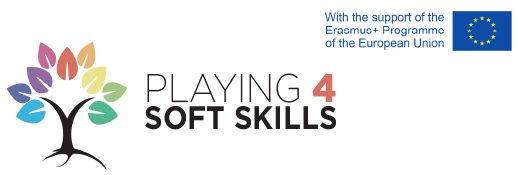How do you feel today?
What made you laugh, what made you angry?
What went pretty well?
Was there something, you would like to change for the next time?
Are you having a good time?
Do you think about those questions sometimes? If not – do not hesitate to do so: Scientists and organizational psychologists like Tasha Eurich and her team found out, that to become a more happy and more fulfilled person in your private and professional life it is important to ask yourself regularly how you are dealing with other people, with yourself and in different life situations. If you can answer what makes you happy, what are your goals , or what went wrong in the given situation, you can take your life in your own hands and you will be more successful in building strong relationships, in communicate effectively or lead other people. But to be able to think about yourself and your relationship to others you need “self-awareness”.
“Self-awareness” was first mentioned by Shelley Duval and Robert Wicklund in the 1970s. They proclaimed that in a given moment people can focus attention on the self or on their environment, just to make sure that their inner values or standards are fitting into the given situation and their behavior. People feel most of the time satisfied when their values are met and unsatisfied when they feel a disbalance between them and how they behave or are seen by others.
That is why Tasha Eurich and her team distinguish between internal self-awareness and external self-awareness: internal self-awareness is when you think about your behavior in a certain situation and compare it with your values, and the overall pictures that you have from yourself. External self-awareness means to understand how other people see you, in terms of what do you want to represent to them.
The prerequisite for self-awareness we have from an early age on, namely when we become able to perceive ourselves as individuals and when we start to learn about principles and values. But it seems, that to practice self-awareness in everyday life successfully it seems a long way: Eurich stated out that just the minority of people knows how to do it.
So, yet, we have the prerequisite from an early age on, the studies show, that it is not necessarily easy to do it. To be self-aware you need methods, time and space. To be self-aware in the everyday rat race can be extremely difficult. And that why it is so important to take a deep breath, stop – focus – and think about for a moment: What happened today?
Practices of self-awareness
Even if it seems not easy, the ability for self-awareness can be trained and learned with different methods. To be able to be self-aware was actually cultivated from early on in our global societies: Especially the Eastern Asian Culture was very aware of different practices: Buddhistic traditions like the Vipassana Meditation practice until today to constantly observe own reactions, emotions and behaviors from a very neutral and non-judgmental point of view. Nowadays reflection and self-management is the buzz word in modern psychology, and it is even pretty connected with the Buddhistic tradition: mainly to be able to observe yourself and occurring situations and when you feel unsatisfied to chance your thoughts and actions.
By that scientist underline that asking yourself WHY something happened like it happened can be interesting for yourself and the awareness of others but it is less effective than asking WHAT happened and WHAT can you do to change that if I want you want to change it.

The reason is that WHY is more speculative: when your boss is giving you not the answer you wished for you can ask yourself WHY this happened but there can be many reasons for it! Maybe your boss ate something bad for lunch, maybe she was tired, maybe she does not like the work you did. You will actually never know, except when you ask for concrete feedback Also when you think about yourself and your reaction, asking WHY, there could be many reasons: Maybe somebody triggered something in you, maybe you were tired, maybe you do not like the person. For most reasons it is difficult to find the ONE definitive answer. That is because most things about us we do not know, our reaction are guided by many unconscious patterns and life experiences. So even when it could be interesting to think a little bit more about yourself and WHY you reacted like you reacted, it makes more sense to use the WHAT question in order to take your life effectively in your hands:
So, the next time when you take a deep breath and have some minutes for yourself, ask yourself WHAT happened today and WHAT could help you to achieve your goals, dreams and aspirations.
Sources:
Eurich, Tasha (2018): What Self-Awareness Really is (and How to Cultivate it)
https://hbr.org/2018/01/what-self-awareness-really-is-and-how-to-cultivate-it
Forsey, Caroline (2018): The True Meaning of Self-Awareness (&How to Tell If You´re Actually Self-Aware
